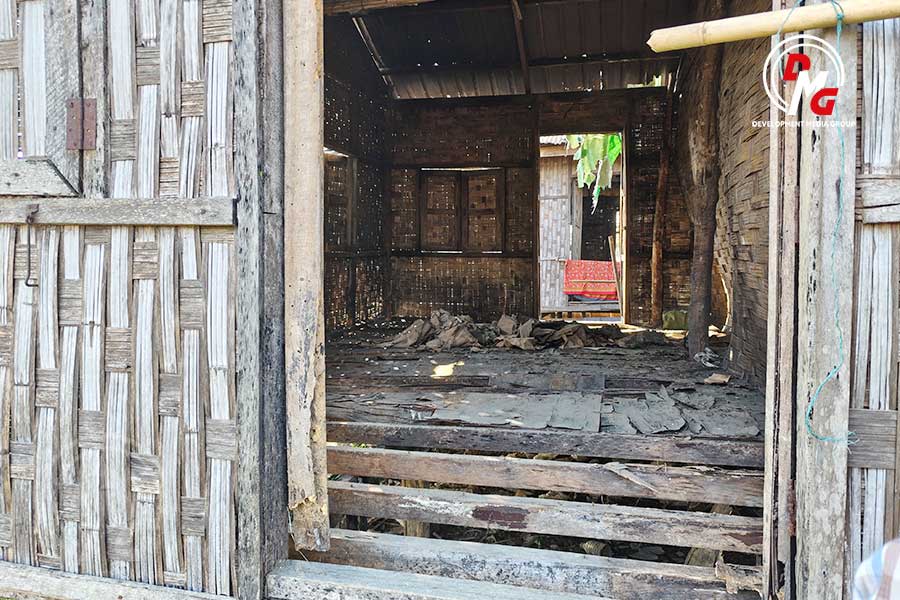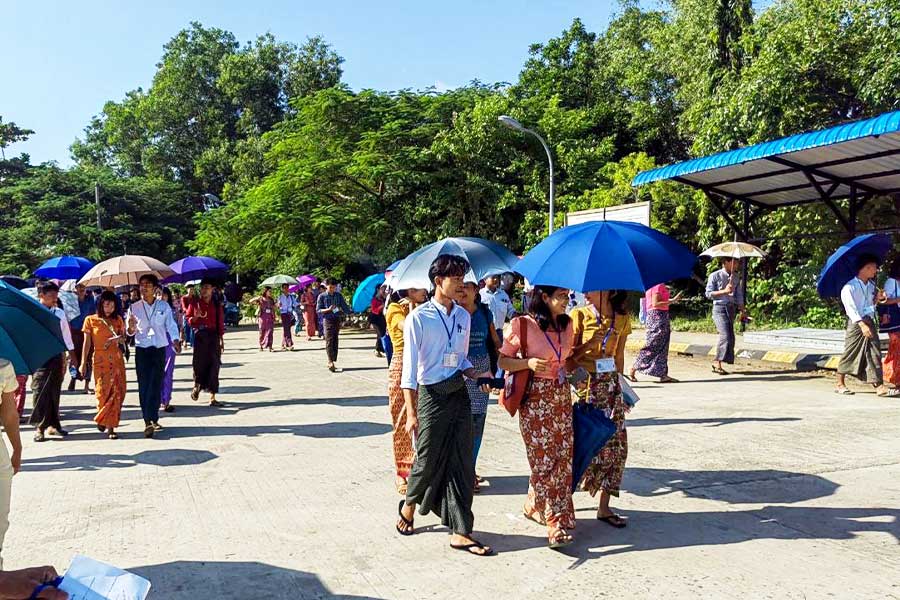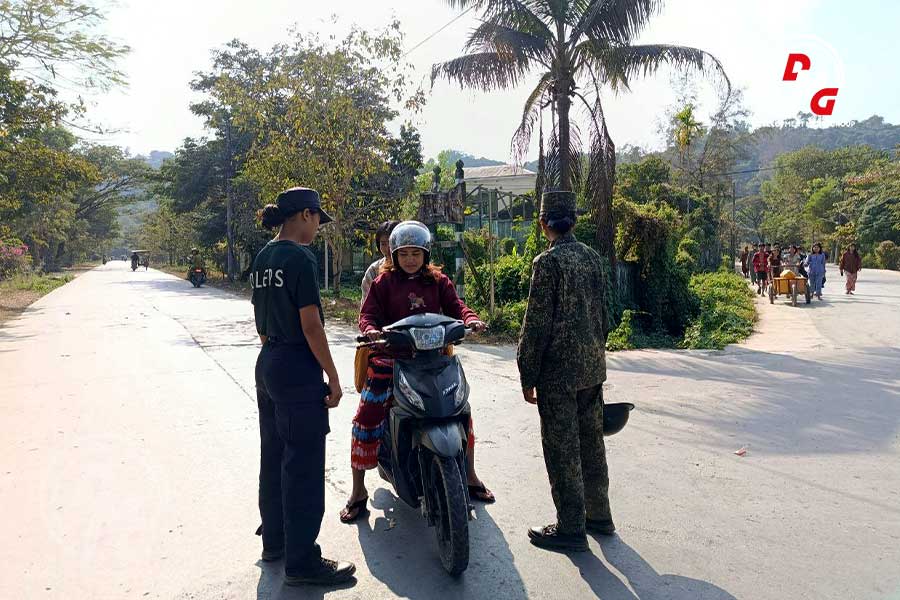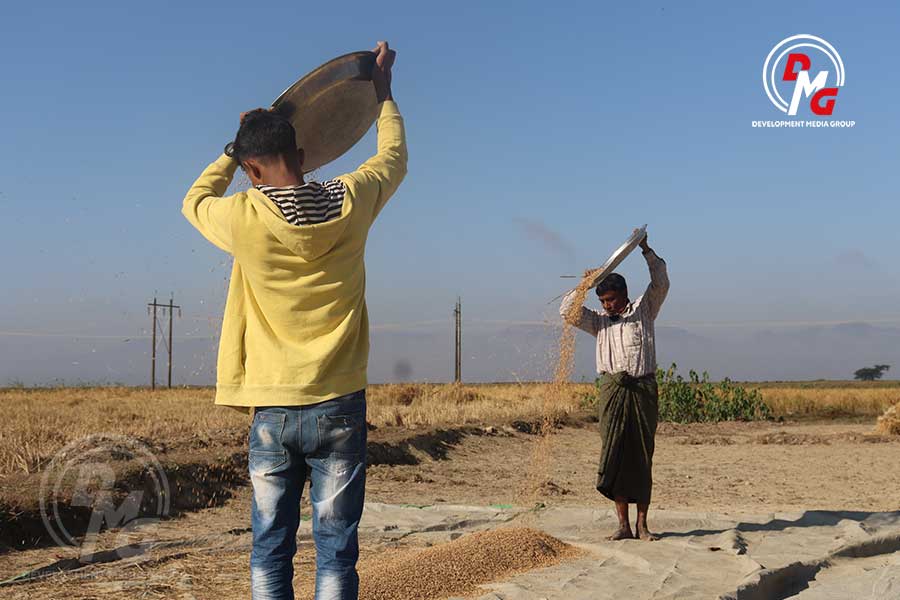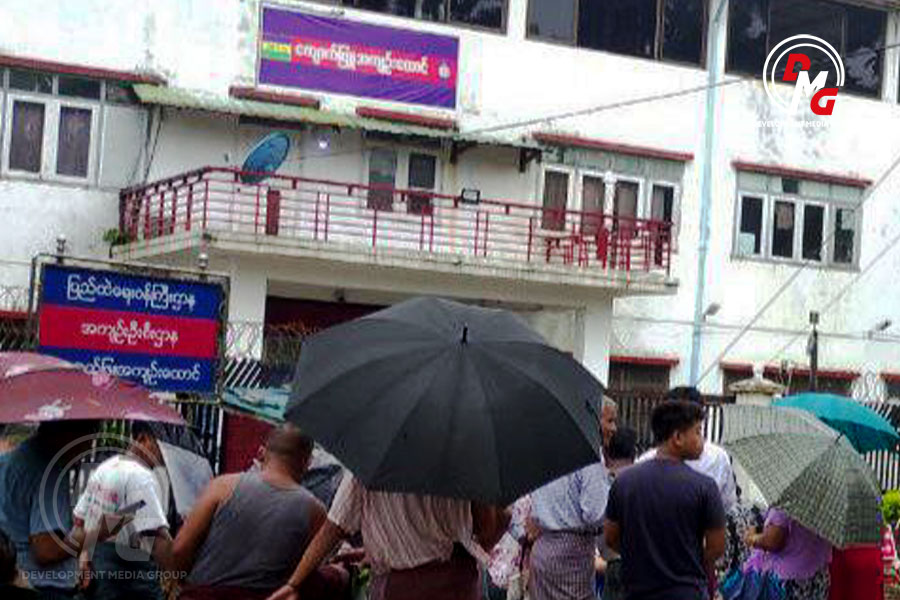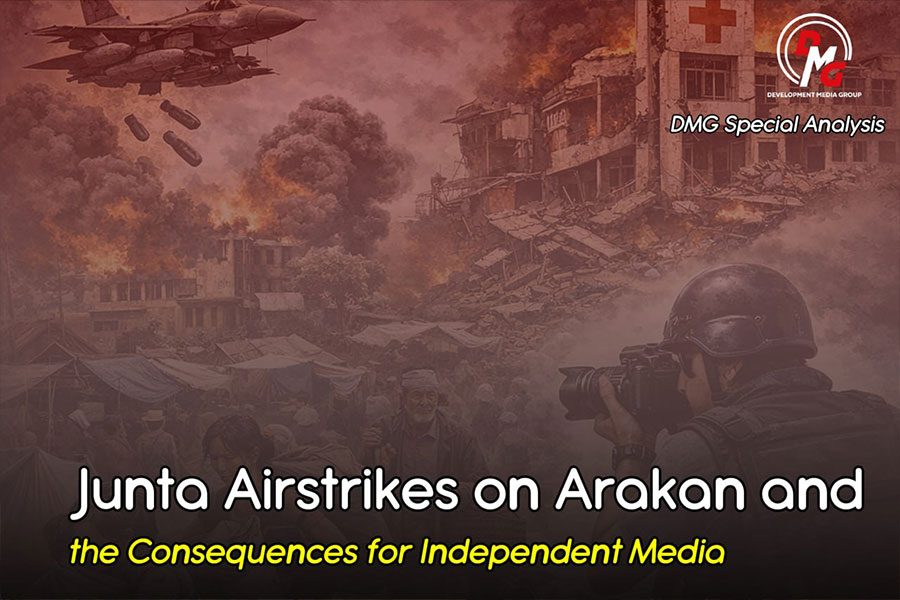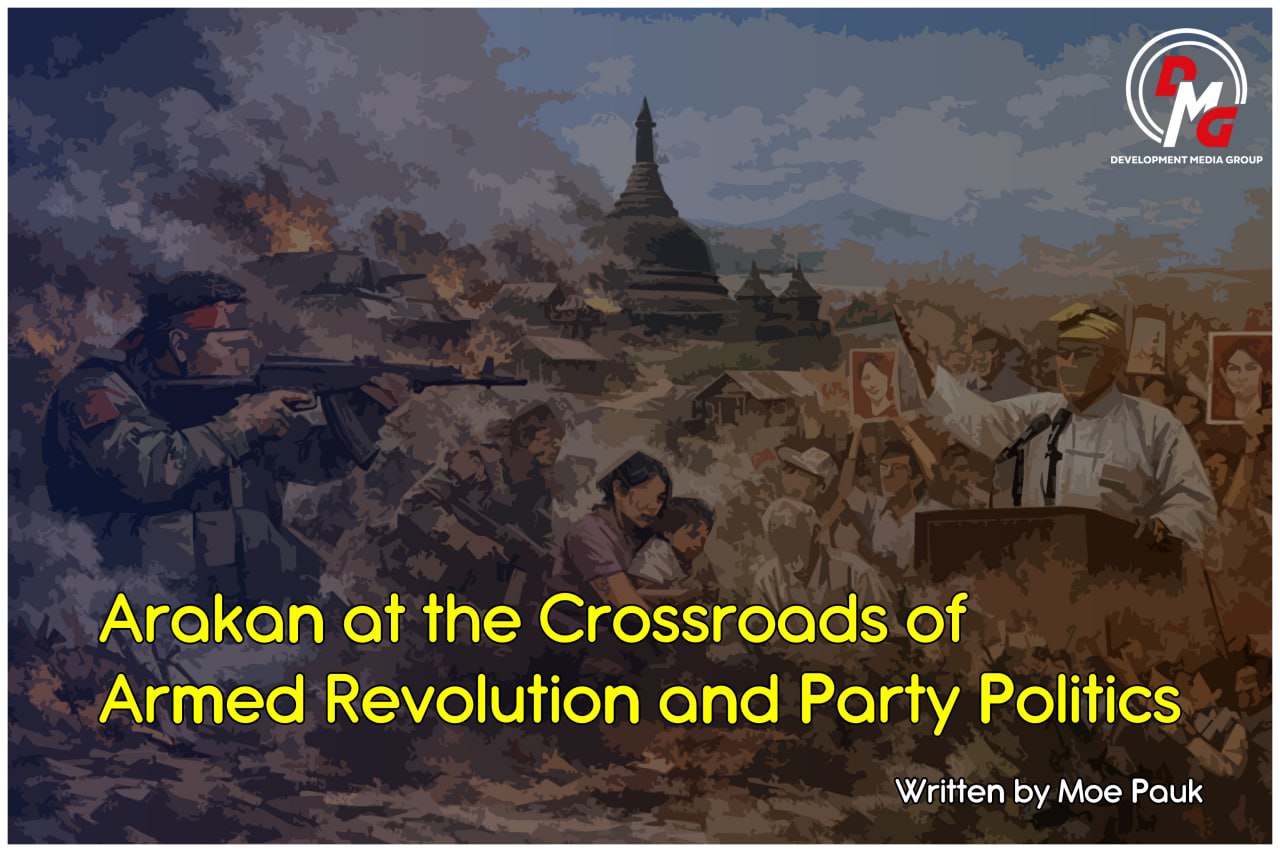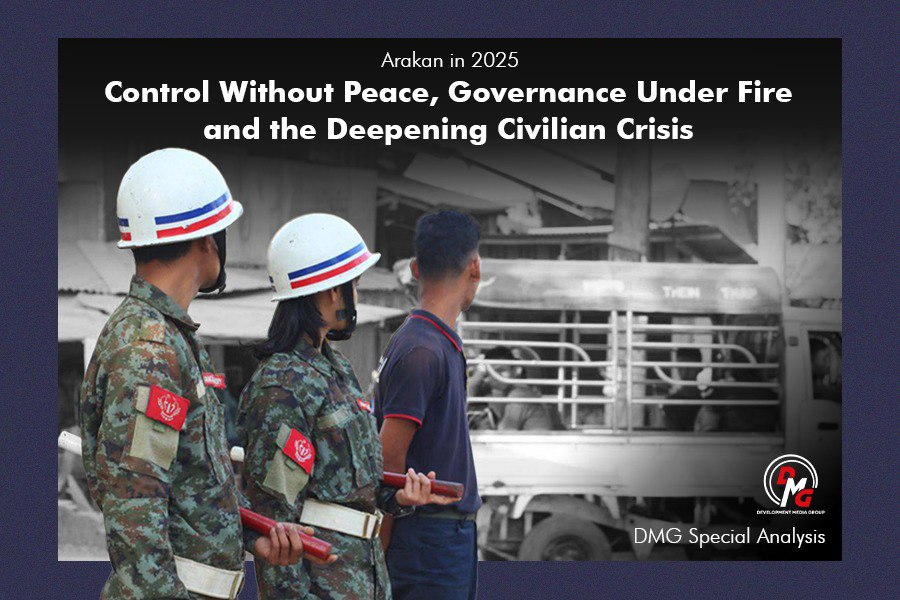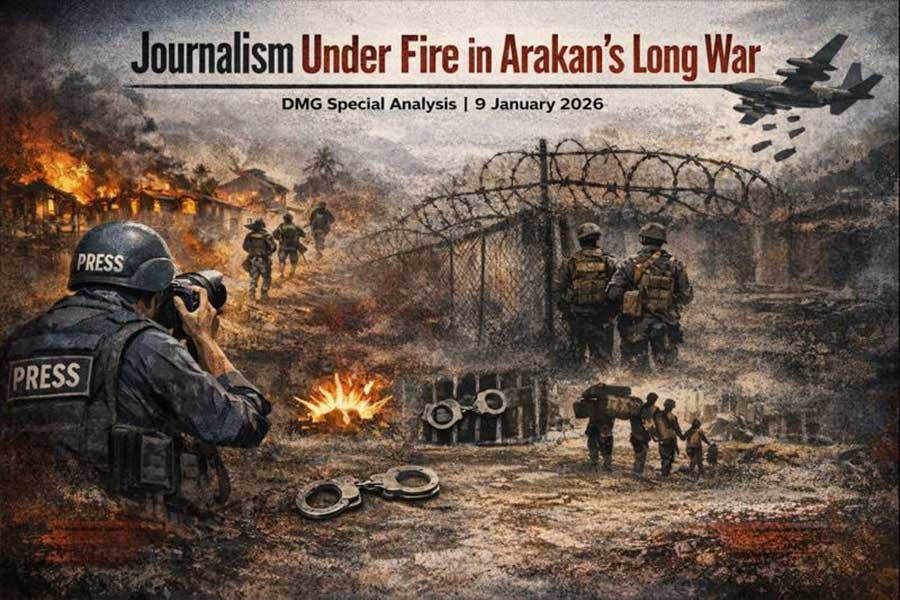- IDPs in Kyauktaw struggle with collapsing shelters amid aid shortages
- Travel restrictions deny Arakanese youth access to higher education
- Motorists fined K30,000 for traffic violations in AA controlled areas
- Inmates escape from Kyaukphyu Prison amid heightened security
- Arakan farmers struggle as paddy market collapses, debts mount
Arakanese Political Parties at a Crossroads
U Pe Than, a 66-year-old veteran Arakanese politician who won a seat in two consecutive general elections, stepped away from party politics last year in favour of what he describes as an activism that is instead based on national interest. His decision came in the context of an era in which the popular stance increasingly seems to view party politics as having come to a dead end in Arakan State.
03 Jun 2022
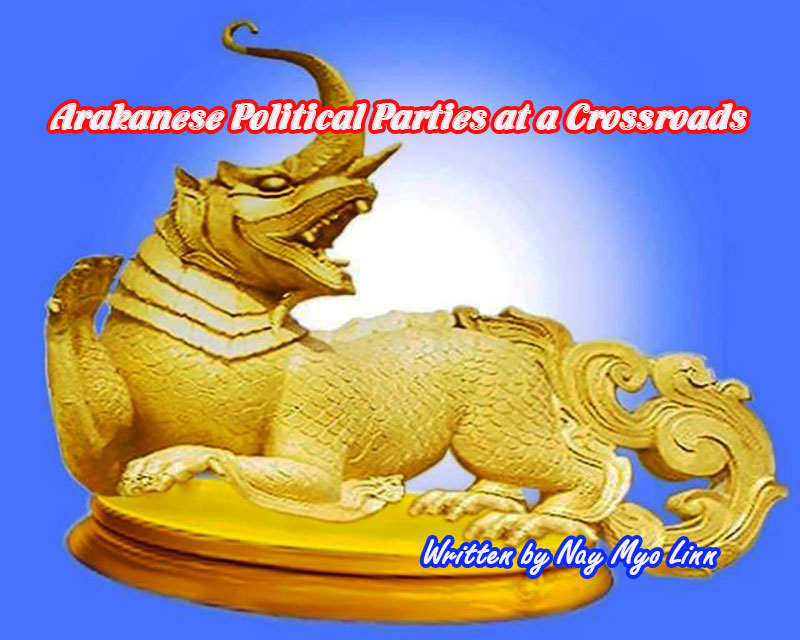
Written by Nay Myo Linn
U Pe Than, a 66-year-old veteran Arakanese politician who won a seat in two consecutive general elections, stepped away from party politics last year in favour of what he describes as an activism that is instead based on national interest. His decision came in the context of an era in which the popular stance increasingly seems to view party politics as having come to a dead end in Arakan State.
U Pe Than resigned from the Arakan National Party (ANP) in August 2021, months after Myanmar’s parliamentary politics was thrown into chaos by the military coup in February of last year. His resignation from the party followed senior party members like Daw Aye Nu Sein and U Zaw Aye Maung accepting seats on the military regime’s governing body. The pair drew significant criticism for joining the junta.
“I have to do tasks for nationalism, which are more important than the party. Party politics is dead now. I want to work for nationalism, which is more important than party politics,” U Pe Than said in explaining his reason for quitting the ANP.
There are three major ethnic Arakanese political parties in Arakan State, namely the ANP, the Arakan Front Party (AFP), and the Arakan League for Democracy (ALD). Elections-wise, the ANP has proved to be the most successful of late. But like any organisation, the party has its ups and downs.
Arakanese parties, which primarily tout nationalism as their raison d’être, saw a decline in public support after 2018, mainly because of the armed struggle that grew increasingly in popularity among Arakanese society.
Arakanese people leaned toward armed struggle when the Arakan Army (AA) established a stronghold in Arakan State and engaged in fierce clashes with Myanmar’s military starting toward the end of 2018.
“Young people have become less interested in party politics,” said U Pe Than. “Arakanese people have taken the view that armed struggle is the only way for them to get what they want.”
Referring also to the United League of Arakan (ULA), the Arakan Army’s political wing, he continued: “They have become more enthusiastic about the revolution of the ULA/AA over party politics. Party politics has limits. Our goal is ambitious and broad. Young people have become increasingly eager to restore the liberty and sovereignty of Arakan State.”
A Lack of Political Outcomes
Arakanese people have lost trust in party politics, in part, because many of the proposals submitted by lawmakers from Arakanese parties ultimately came to naught in the parliamentary arena from 2011-2021.
“When they had no other choice, Arakanese people had to take the path of party politics. They supported Arakanese parties because they believed that they could have a say, hold discussions under the party flag, and submit proposals in the parliament,” said U Pe Than. “At present though, only AA can rock the hearts of people like an earthquake.”
Public interest in party politics has declined because via that route, ethnic people have been unable to achieve their aspirations such as a genuine Union, decentralisation and self-determination, acknowledged ANP chairman U Tha Tun Hla.
“People think elections can bring no real changes for them. Party politics only allowed implementation of regional development works, to a certain extent, and could not bring about ultimate political ambitions such as self-rule and self-determination,” U Tha Tun Hla told DMG.
Under the current landscape, armed revolution is being favoured over politics across Myanmar, said the AFP chairman, Dr. Aye Maung. He added that due to a lack of data, it is difficult to say with certainty whether public interest in Arakan State’s party politics has declined, but he said support for the AA is clearly growing.
“Political parties can only raise questions and submit proposals. They do not have actual power, and thus cannot practically serve the interests of the people,” said Dr. Aye Maung. “Arakanese people want their state to be managed by Arakanese parties. [The central government] does not respect the Arakanese parties that won in elections. So, people started to think that it is pointless to cast votes.”
The voices of Arakanese people were ignored under the government led by the Union Solidarity and Development Party (USDP), said Dr. Aye Maung. And the National League for Democracy (NLD), which came to power promising democracy and federalism, also centralised power during its rule, and Arakanese people therefore no longer have faith in party politics, he added.
“Arakanese people no longer trust party politics. They assume that no matter how many votes they give for Arakanese parties, the parties will not be able to form a government and rule Arakan State,” he explained.
Ko Kyaw Naing Htay, a 25-year-old student union leader from Arakan State, initially hoped that the ANP, which won big in local elections in 2015 and 2020, would be allowed to lead the state parliament and state government.
“After the 2015 elections, at first I believed that Arakanese parties would complain about human rights abuses against Arakanese people, and present the plight of Arakanese people during the war period, and protect the Arakanese people as best they could in the parliament,” he said.
“But later, the military and the government ignored the voices of lawmakers. So, our trust in political parties has declined. For now, we hold the view that parties can do nothing for the fate of Arakanese people,” he added.
Ko Kyaw Naing Htay was released from prison on March 11, after being charged with two counts of defamation under Section 505(b) of the Penal Code and Section 29 of the Natural Disaster Management Law, and sentenced two years and six months in prison for pointing out human rights abuses during fighting between the military and Arakan Army in Arakan State.
“I don’t think the current party politics is good for the Arakanese people. I think the ULA/AA is the only way out for the Arakanese people,” he said.
Elections Planned
The military council, which overthrew the Daw Aung San Suu Kyi-led civilian NLD government and rejected the 2020 election results citing voting irregularities, is seeking to hold elections in 2023 using a system of proportional representation (PR). Meetings have been convened by the junta-controlled Union Election Commission, with political parties’ attendance seen as tacit approval for the military regime’s election plans.
Of the three main parties in Arakan State, the AFP has attended the meetings, while the ALD has not attended the meeting and has been outspoken in its opposition to the coup. The ANP has not yet attended the talks and has not offered a clear indication of its stance on them.
“We are not giving any advice at the moment. The ANP has not yet attended those meetings. At the moment, we are still studying the PR system within the party,” said U Thar Tun Hla, chairman of the ANP.
It is not yet known what the Arakan Army will say about the military junta’s planned elections next year, but U Pe Than said there could be rivalries between Arakanese political parties and the Arakan Army if the former run in the election.
“There is often rivalry between political parties and the armed groups in Arakan State. … It is not clear whether political parties will continue their political course or join the ULA/AA and eschew running in elections under the 2008 Constitution,” the former Arakan State lawmaker said.
Asked what would happen to Arakan State if political parties from mainland Myanmar won the election in the event that Arakanese parties did not compete, U Pe Than said: “The [fate] of the Arakanese people is in the hands of the ULA/AA. If the political parties from mainland Myanmar win the next election, no party will be able to do anything that the ULA/AA does not like in Arakan State.”
Nonetheless, the ANP chairman U Thar Tun Hla said he would continue to work through political means to achieve the self-determination and autonomy demanded by the ethnic nationalities.
Political parties are needed to address issues that cannot be resolved by the government or military, Dr. Aye Maung concurred.
U Pe Than, who has washed his hands of party politics, left it more ambiguous when speaking to DMG last month: “There are many people in political parties who are actually politically competent. I want these people to be involved in national affairs now, without wasting time. I think we need to be involved in national affairs that are more important than party politics because time is of the essence. I want to say that we must achieve our desired goals by working together.”




